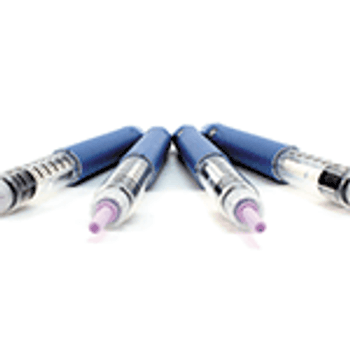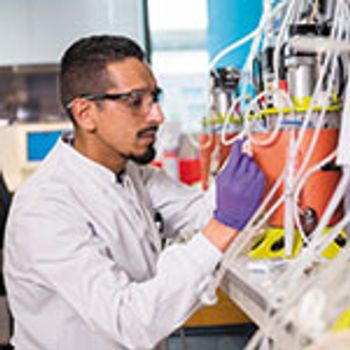
The agency is requiring companies that make sartan blood pressure drugs to review their manufacturing processes due to the problem with impurities.

The agency is requiring companies that make sartan blood pressure drugs to review their manufacturing processes due to the problem with impurities.

The agency recommended six medicines for approval at its January 2019 meeting, including treatments for lung cancer, HIV-1, and autoimmune disorders.

The US Pharmacopeial Convention’s new plan will include new and revised quality standards and activities to support the development of new generic drugs.

New HHS proposal would remove the current safe harbor protection from the federal Anti-Kickback Statute for rebates or discounts provided to Medicare Part D drug plans and certain state Medicaid programs.

As we approach the next instalment of Pharmapack Europe, a potentially perilous situation in relation to drug packaging has emerged for pharmaceutical companies should Brexit result in a ‘no deal’ scenario.

Getting to the root of the cause can prevent future problems, says Susan Schniepp, executive vice-president of post-approval pharma and distinguished fellow, Regulatory Compliance Associates.

Policies emphasize the importance of ensuring data integrity in the United States and abroad.

Robotic isolators and single-use technologies are gaining ground, according to aseptic processing consultant Jim Agalloco.

The market for biosimilars in Europe remains consistently robust, with 16 new biosimilars approved in 2018.

Political instability is causing uncertainty in Europe and wreaking havoc with US regulatory timeframes.

Various groups and stakeholders from pharma, healthcare, and government are responding to a new draft environmental risk assessment guidance from EMA.

Novel analytical methods may help biologics manufacturers respond to stricter regulations on particulate matter.

ChargePont Technology has revealed that it is now able to expand its smart monitoring technology into North America thanks to being granted HazLoc (Hazardous Area) certification.

A Memorandum of Understanding (MoU) has been signed by the UK’s MHRA and the State Institute of Drugs and Good Practices of the Ministry of Industry and Trade of the Russian Federation.

Only careful planning can prevent problems that stem from differences between a sponsor’s and a CDMO’s equipment, practices, and culture. This article highlights best practices and case studies.

The company is recalling three additional lots of Ibuprofen Oral Suspension Drops, USP, 50 mg per 1.25 mL because of a higher concentration of ibuprofen.

In a statement, FDA Commissioner Scott Gottlieb announced the agency’s plans to publish guidance to promote the development of complex generic drugs.

FDA staffers will be hard-pressed to process and review the wave of new drug application submissions in pre-established timeframes for action.

The investigation into the root cause of the NDMA impurity found in API is still ongoing, but the agency believes the impurities may be caused by specific chemicals and reaction conditions in manufacturing processes.

The guidance describes how to develop a REMS Assessment Plan, discusses the impact of REMS on patient access to drugs, and gives recommendations on reporting REMS findings to FDA.

The European Medicines Agency has announced that its physical relocation to Amsterdam will be complete in March 2019.

The European Medicines Agency has recommended that no new patients should start treatment with Lartruvo (olaratumab).

The Wasdell Group has been granted a Health Products Regulatory Authority (HPRA) license for its new European headquarters, based in Dundalk, Ireland.

The company is voluntarily recalling six lots of Losartan potassium and hydrochlorothiazide tablets, USP because of the impurity, NDEA.

Full commercial launch of the drug is underway in the United States, with Europe to follow.